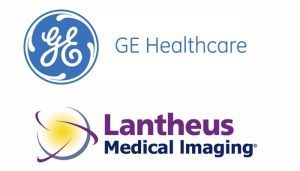 Melissa Wollerman, Clinical Research Associate, IMARC Research
Melissa Wollerman, Clinical Research Associate, IMARC Research
In a previous blog published towards the end of 2013 titled “Essential Documents – What Will Regulatory Binder Look Like in 5 Years?”, the blog encompasses the potential of Regulatory Binders becoming electronic. Now, almost five years later, many sites and sponsors have explored and implemented the electronic filing capability.
According to the applicable Federal Regulations, the following is noted on maintaining records:
‘A participating investigator must maintain the following accurate, complete and current records relating to the investigator’s participation in an investigation: (1) all correspondence with another investigator, an IRB, the sponsor, a monitor, or FDA, including required reports’. (CFR Title 21, Part 812.140 (a) Investigator records)
In ICH GCP, the following guidance is provided:
‘The investigator/institution should maintain the trial documents as specified in Essential Documents for the Conduct of a Clinical Trial and as required by the applicable regulatory requirement(s). Filing essential documents at the investigator/institution and sponsor sites in a timely manner can greatly assist in the successful management of a trial by the investigator, sponsor, and monitor.’ (ICH GCP 4.9.4 and 8.1)
As you may have noticed, the regulation and guidance do not mention how sites and Sponsors need to maintain the Regulatory Binder, only that they must be maintained.
Implementing an electronic Regulatory Binder may seem a bit out of your comfort zone; however, with the costs of office supplies, decreasing office space and a potential for misfiling, the benefits of electronic filing can be immense.
Technology is ever developing
An electronic trial master file, or eTMF, is an essential tool kept and maintained by the site and Sponsor to house all necessary regulatory documents throughout a study. Electronic filing can be utilized with the latest and greatest computer software, spreadsheets and charts; whatever it may be that keeps a site or Sponsor well organized.
Increased productivity
The goal of electronic filing is aimed to be fast and efficient, eliminating tedious tasks such as printing, scanning and filing. Tracking down an Investigator for a signature on a regulatory document can be challenging at some sites. These valuable signatures can easily be captured in an electronic file, where the Investigator can complete at their leisure.
Fewer binders means more space
Many monitors, site or Sponsor personnel can attest to the fact that study binders take up a lot of space. These binders grow throughout a study and can crowd an area very rapidly. Rather than shuffling through these binders to find that one document you’ve been searching for, try creating a cloud-based filing system that allows you to store and access all study documents on any laptop or tablet.
Cost Effective
The cost of paper, ink and other typical office supplies can add up over the duration of a study. Looking into a cost effective electronic filing system can help save the site and Sponsor both time and money.
Enhanced Security
Have you ever experienced a site that does not maintain the Regulatory Binder in a locked, secure location? As mentioned in Daily Documentation Essentials: A Tour of the Regulatory Binder, “All Essential Documents should be stored in a locked cabinet or office. Only the study team, monitor and regulatory authorities should have access to study-related documentation.” What happens when a site does not maintain secured study-related documents? A safe option that many sites and Sponsors are leaning towards is role-based access software to implement safeguards throughout a study.
Have you changed your filing system in an effort to “go green” or to take advantage of the latest technological advances? If yes, how is this benefiting you?
The opinions expressed in this blog post are the author’s only and do not necessarily reflect those of MassDevice.com or its employees.
The post How to implement electronic Regulatory Binders in your study appeared first on MassDevice.
from MassDevice https://ift.tt/2OsuF7w










 GE Healthcare (NYSE: GE) and Lantheus Holdings, Inc. (NASDAQ: LNTH), parent company of Lantheus Medical Imaging, Inc. have started a second Phase 3 clinical trial of flurpiridaz 18F, an investigational agent being evaluated for the detection of coronary artery disease.
GE Healthcare (NYSE: GE) and Lantheus Holdings, Inc. (NASDAQ: LNTH), parent company of Lantheus Medical Imaging, Inc. have started a second Phase 3 clinical trial of flurpiridaz 18F, an investigational agent being evaluated for the detection of coronary artery disease.


 Melissa Wollerman, Clinical Research Associate,
Melissa Wollerman, Clinical Research Associate, 
 Shares in
Shares in 






 At DeviceTalks Minnesota 2018, medtech veteran Michael Pederson provided an inside look at the Abbott-St. Jude Medical merger and what’s ahead for Abbott’s cardiovascular technologies
At DeviceTalks Minnesota 2018, medtech veteran Michael Pederson provided an inside look at the Abbott-St. Jude Medical merger and what’s ahead for Abbott’s cardiovascular technologies



 The FDA last week set the user fee rates for fiscal 2019, which is slated to begin in October, raising the fees across the board by nearly 4%.
The FDA last week set the user fee rates for fiscal 2019, which is slated to begin in October, raising the fees across the board by nearly 4%.

 A federal court jury last week awarded
A federal court jury last week awarded 